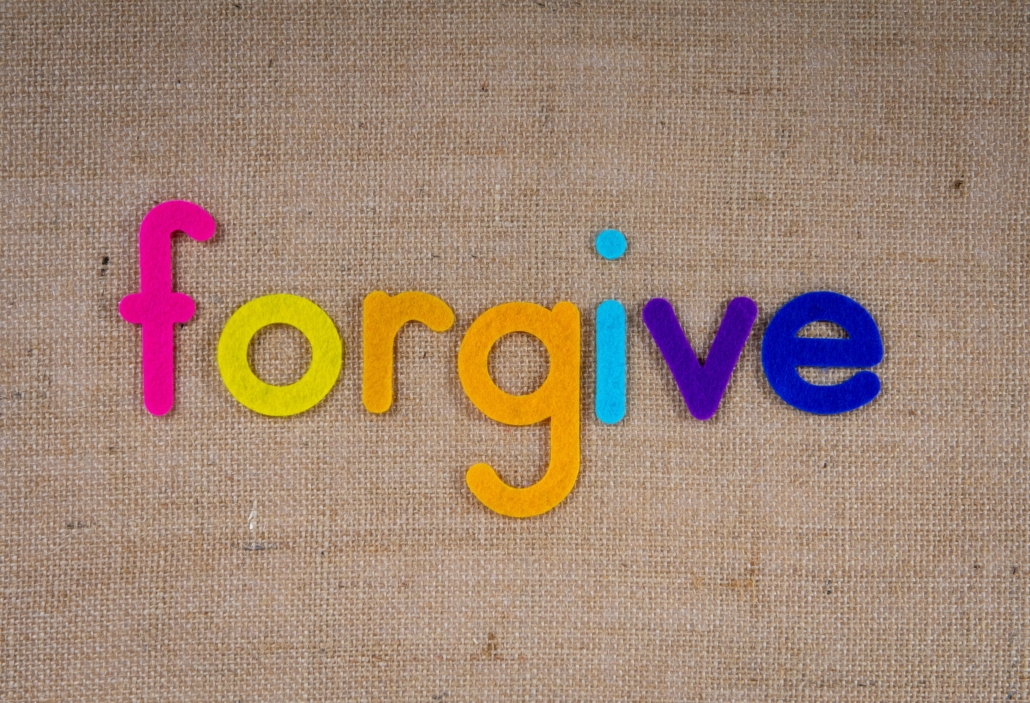REASONS TO SEE FORGIVENESS AS EMOTIONAL SELF CARE

Seeing forgiveness as emotional self-care may sound strange. Especially if you experienced an abuser telling you to forgive when they haven’t changed.
Forgiveness can be premature if done too early. Refocusing on you and your emotions is an important step in healing. Allow yourself to feel anger and find ways to recover from the pain you experience. This frees you to determine anything you want to change about yourself or your relationships.
Therefore, forgiveness should not replace taking time to recover. EMOTIONAL ABUSE HEALING TO CONVERT YOUR PAIN TO GROWTH gives pointers on what helps you recover. The growth you experience is called post-traumatic growth.
Aftershocks of Trauma
On the other hand, you don’t want abuse to be like an earthquake in your life, with aftershocks that continue forever. There are two common reasons abuse may continue to affect your life.
- Trauma injures how you think about yourself and the world. This may lead to believing what an abusive partner said about your worth or ability, often without conscious awareness. For instance, “you don’t know how to communicate” or “you’ll never find another person to love you.” These types of beliefs could prevent you from fully recovering and creating the life you want.
- Another troublesome path can be staying with anger long after its usefulness in inspiring change. Rehashing past experiences over and over releases the stress hormone cortisol just as if abuse is happening again. That acts on your body as a toxic chemical that can lead to physical health problems.
Forgiveness done appropriately can prevent past abuse from continuing to rule your life.
Forgiveness as Emotional Self-care
Definition
First, let’s define forgiveness. When you forgive, you intentionally release resentment or anger. You do this for yourself, not to benefit another person. Refusing to continue resentment stops the past from determining how you act and feel today. You can devote your energy to the kind of life you want. Let me give you an example.
During my divorce, I felt resentful when I learned my ex had the right to take the children on vacation for two weeks. The pain of betrayal was fresh, and it felt unfair to be separated from them. When I let go of my resentment, I began to appreciate having a break from full-time parenting, and that giving the children time with their father’s family was in their best interests since in our case, it was a safe environment.
It took me years to fully forgive. Consider forgiveness as a process. Clarissa Pinkola Estes[i] says it often takes place in stages. She also says that some things we forgive 25, 50, or 75%. If something triggers an old memory, you may regress and that is human. Try viewing such times as an opportunity to grow your forgiveness muscles.
Forgiveness Myths
Forgiveness as emotional self-care takes place within you to release the past. To further clarify it, let’s look at what forgiveness does not involve:
- Telling the person, you forgive them
It is not necessary to speak to them about forgiving and is inadvisable if the abuser has not changed.
- Continuing a relationship with them
You can forgive while still maintaining boundaries that protect you.
- Forgetting what happened or letting them off the hook
You can both forgive and hold them accountable. You can also feel love for a person but know you do not want them in your life because of their choices.
- Seeing your identity as being a victim
Acknowledging the harm and forgiving someone does not mean you accept an identity of victimhood. You are not what happened to you.
Is forgiveness easy? No. Am I saying everyone must? No. Consider your own needs and decide if you’re ready or whether it will be freeing for you.

Forgiveness Guide
This guide is for use when you are ready. The only “should” is giving yourself time to recover from abuse before considering it. If you’re early in the healing process, you can forgive when and if it’s right for you.
This guide forgives in a self-caring way. Print it if you wish.
- Do you need to start with forgiving yourself? If you blame yourself for getting into an abusive relationship, it’s important to release this. You can’t know what you don’t know. Recognize what you’ve learned and count it as a strength going forward.
- Write about how continued resentment and anger interferes with who you are and how you want to live.
- Write any of the following that speak to you five times. Notice how you feel when you’re done. Then write about anything that gets in the way of believing them. That will tell you what you need to focus on to continue healing.
- I do not allow what (fill in the blank) does to continue to dominate my life.
- I let go of focusing on what (fill in the blank) did and refocus on what gives me joy.
- I let go of anger and resentment and embrace my freedom.
- I accept that (fill in the blank) is who they are and release them without receiving an apology.
- Forgiving frees me of burdens.
Meeting Your Needs
Emotional abuse healing is a complicated process. Remember to engage in it with patience and kindness toward yourself.
Please email me about what you find helpful in your recovery efforts, what gets in the way of forgiveness, or any other issues you would like me to address in a future blog.
[i] Clarissa Pinkola Estes, Women Who Run with the Wolves. (New York: Ballantine Books, 1992)

